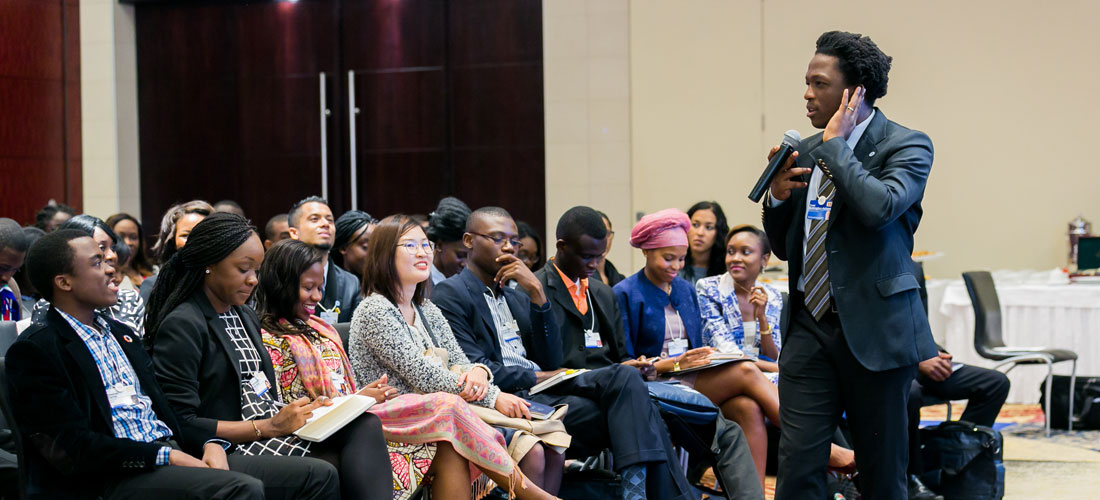
From the 3rd to the 5th of June the World Economic Forum took place in Cape Town, South Africa. The forum examined varying facets of the African economy, the future of technology, gender equality, sustainability, food, trade, infrastructure, health and migration.
Food Innovation Program student, Benedicte Mundele from the Democratic Republic of Congo was invited to the forum as a presidential representative of the Kinshasa Hub and Global Shaper Community.
The Global Shaper Community is an initiative of the World Economic Forum. It is a network of global hubs that are led by young people who have made considerable contributions to their community through social innovation and education.
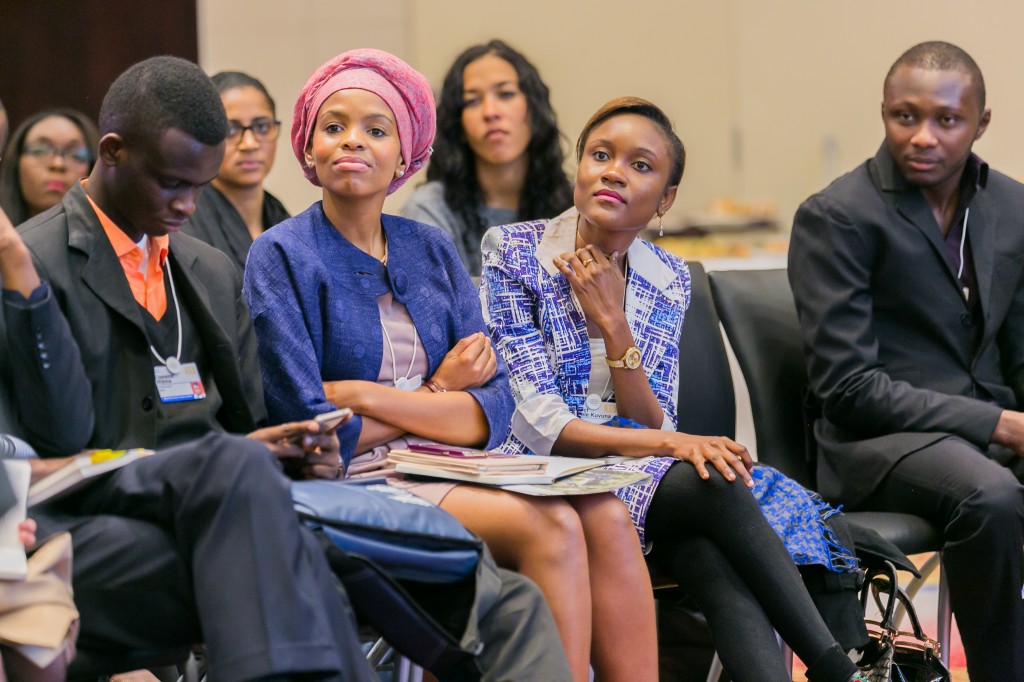
Benedicte was selected to join Congo’s Kinshasa Hub by the ex-founding curator, who selected several active and young community advocates from the local Kuvuna Foundation. Founded in 1998, The Kuvuna Foundation aims to mentor and empower youth to become leaders and foster innovation, creativity and entrepreneurship.
This year, Benedicte was the curator (official president) of her hub, which is composed of 12 global shapers (six women and six men). With her hub Benedicte has organised a series of events such as celebrating Christmas in a local orphanage and hosting a forum on the topic ‘Africa, a Land of Opportunity’, which inspired many young people from the area to pursue social innovation initiatives and commence their own business ventures.
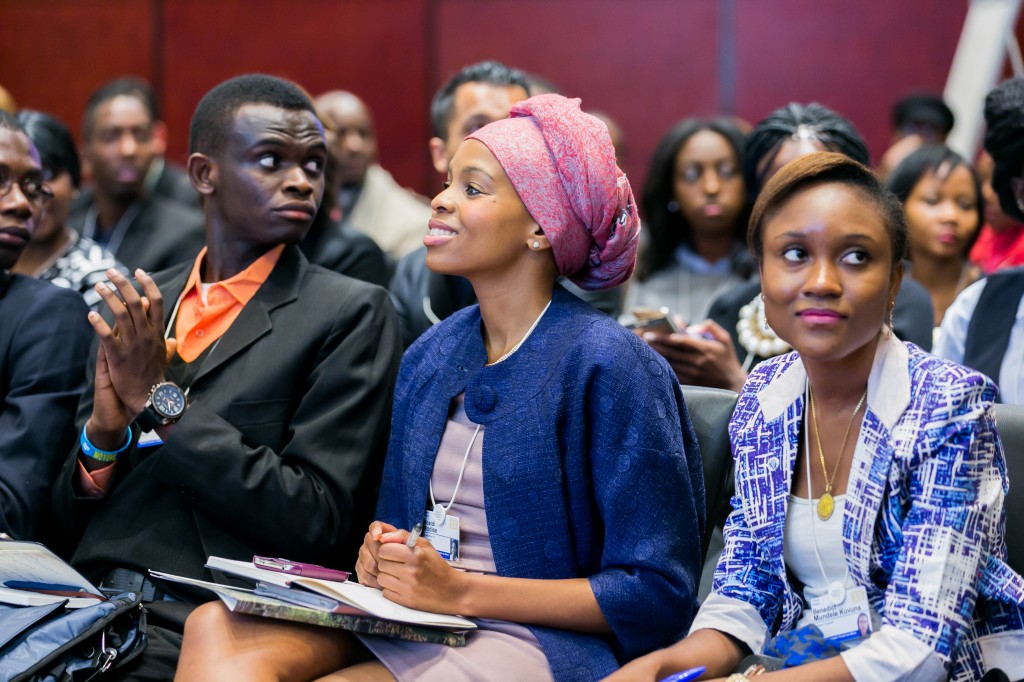
The 25th World Economic Forum ‘Then and Now: Reimagining Africa’s Future’, convened regional and global leaders from business, government and civil society. Key speakers included Jacob Zuma, the President of South Africa, Paul Polman, Chief Executive Officer of Unilever in the United Kingdom, Simpiwe K. Tshabalala, the Joint Chief Executive Officer of the Standard Bank Group, Abdirahman Yusuf Ali Aynte, Minister of Planning and International Cooperation of Somalia and Kwesi Amissah-Arthur, the Vice President of the Republic of Ghana. Joined by a myriad of other political and economic experts, the speakers were invited to share insights on the present African landscape and identify innovative approaches to accelerate growth while bringing about sustainable business development for the future.
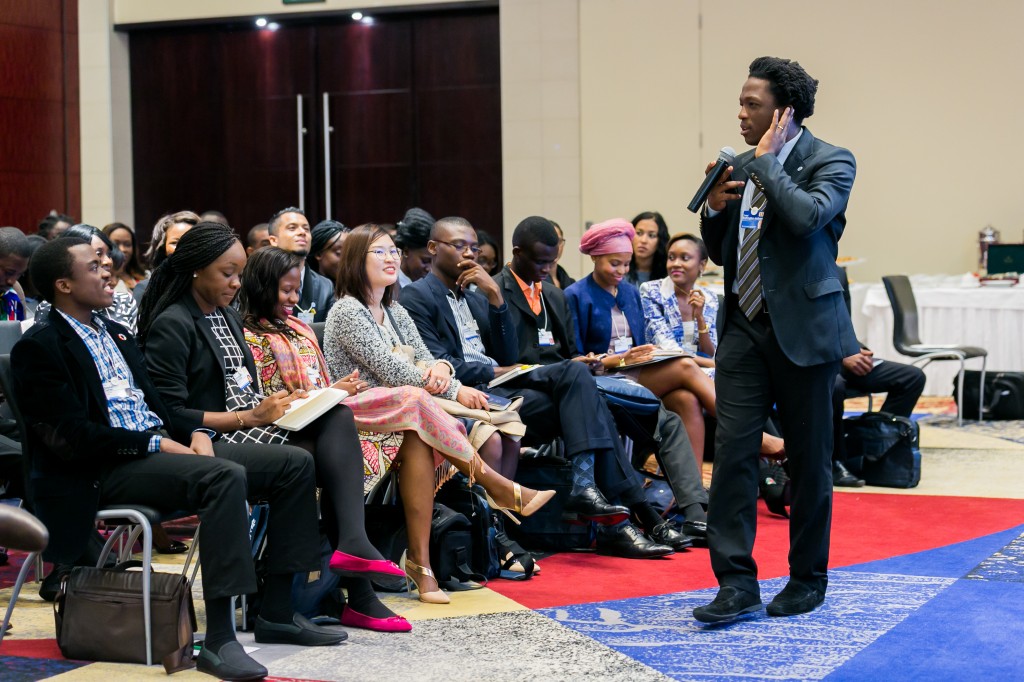
According to Benedicte, “one of the most interesting sessions was on Meeting the Food Challenges in Africa. In the session they presented how Africa possesses 60% of the world’s arable land and 70% of its population relies on agriculture for its livelihood, yet the continent is a net importer of food.” Speakers were invited to talk about the challenges and opportunities Africa will face as it accelerates agricultural production, by examining land-use reforms, stakeholders and the liberalization of regional markets.
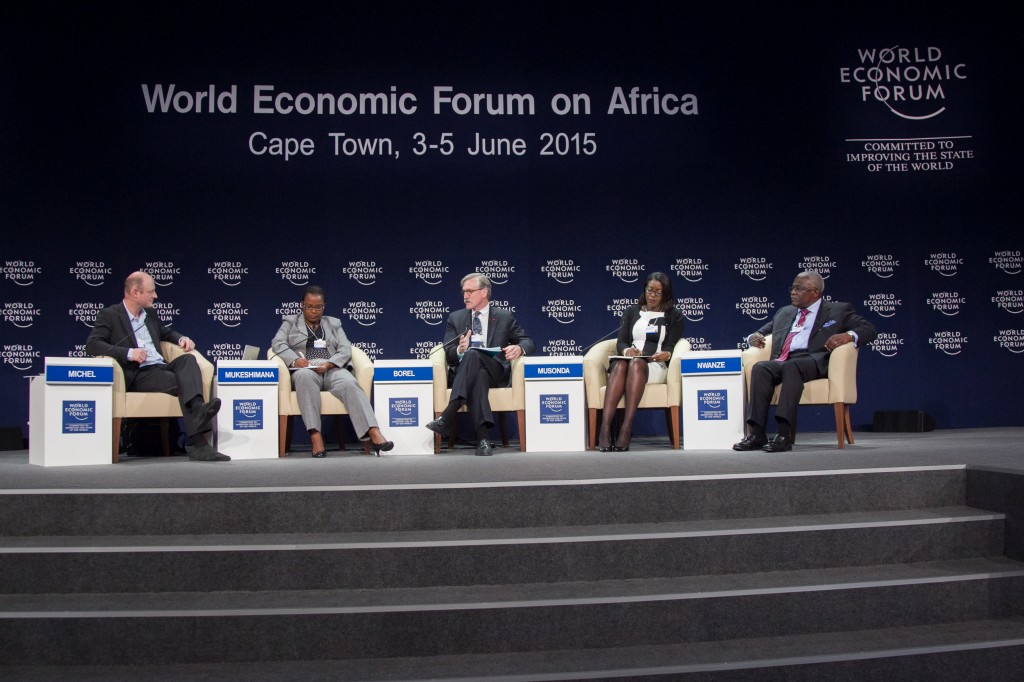
The session was moderated by Serge Michel, Editor of Le Monde Afrique, and composed of four panellists including: Kanayo F. Nwanze, President of the International Fund of Agriculture Development (IFAD), James C .Borel, Executive Vice President of DuPont, Monica Katebe Musonda, Founder and Chief Executive Officer of Java Foods Limited and Gerardine Mukeshimana, Minister of Agriculture and Animal Resources of Rwanda.
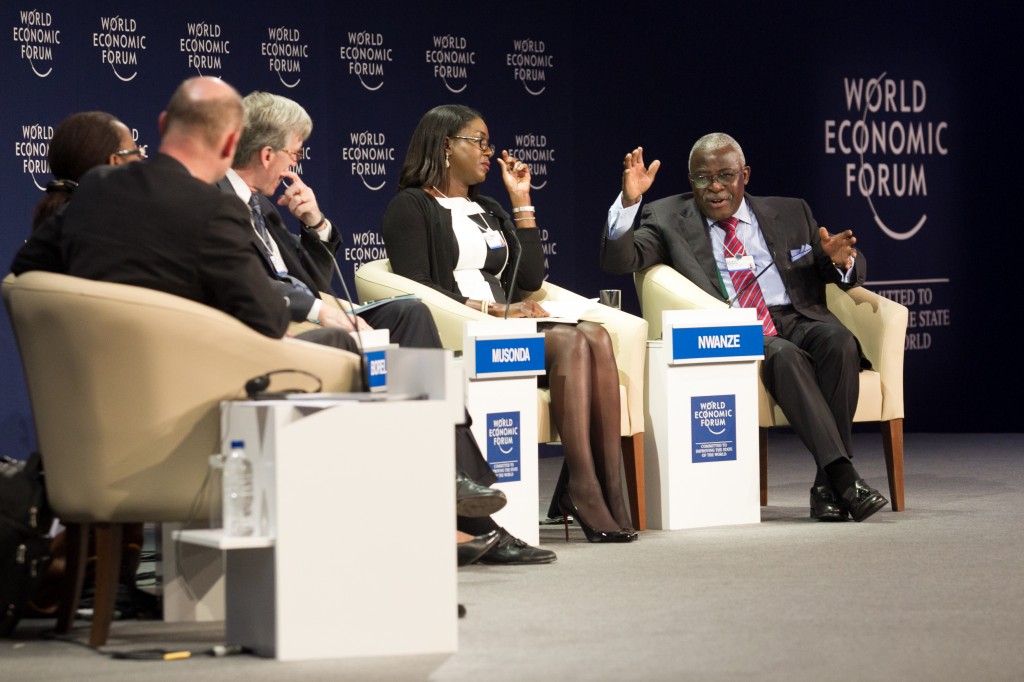
Each speaker presented their personal experiences on everyday challenges faced within their respective organisations. The discussion also covered ideas on transforming life and business of small-scale farmers, how we can deal with high costs of distribution and power, and how young people can enter the agribusiness industry (not only farming, but the entire value chain). Questions that were proposed and discussed by the panel included; how can we can produce more food, but more importantly the right types of food with nutritional value? How can we empower women (and the community) in agriculture and raise the level of education surrounding food production? How can we make the rural space attractive, so that villages become attractive, liveable towns? And how we can fashion good governance in agriculture and business?
As a result of participating in several sessions Benedicte states “I have learned a lot of things in different areas. But the main consideration is that we are the ones we are waiting for. The change of our continent depends on our roles in society and our ownership in the process of transforming. I have learned about the challenges we face, and how to work on them in order to strengthen and promote Africa.”
© 2015 Food Innovation Master Degree | © 2014 FUTURE FOOD INSTITUTE
